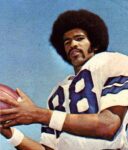 The great Drew Pearson is 75 today. The OG 88. Walk around today with a little bit of a chip on your shoulder in his honor. Try to use the phrase “Hail Mary” at least a couple of times. And just point to the crowd knowingly. Don’t spike it.
The great Drew Pearson is 75 today. The OG 88. Walk around today with a little bit of a chip on your shoulder in his honor. Try to use the phrase “Hail Mary” at least a couple of times. And just point to the crowd knowingly. Don’t spike it.
~~~~~~~~~~~~~~~~~~~~~

I’m not a hundred-percent sure what to do with Substack. It feels like social media, to which I am fundamentally opposed. But some of the best writers I know personally are writing there regularly. So, I’m reading Jim Martin and Daniel Harris and Carrie McKean. Then Steve Schorr, my brother and partner in the Gospel at First Presbyterian, turned me on to the Disarming Leviathan guys. And now I have come across Kenneth B.
I do not know who Kenneth B. is. He is an orthodox Christian. That’s it. Maybe that’s all I need to know. He has written an excellent piece on the Church and our understandings of Church as the Body of Christ. Or, better said, our gross misunderstandings. And it is the best article on Church as the transforming community of faith I have read in a long time.
He writes about people a little younger than me, people in their 40s and 50s maybe, and how they were raised to view Christianity as a personal relationship with Jesus, faith as an emotional experience, and the Church as functioning to produce that experience.
“The idea that church existed to form a people rather than to stimulate an individual was unimaginable to us. Church was treated like a spiritual energy drink. You consumed it for a jolt of religious feeling, and if you stopped feeling the jolt, you changed flavors… Looking back, I realize that what I was handed was not the faith of the apostles, but a very late cultural invention.”
I just preached yesterday about how God’s Holy Spirit transforms us in Christian community, how our commitments to Christ and to his people–people we would never choose, people we don’t agree with, people we may not even like–form us more and more into his holy image. I only wish I had read Kenneth B’s article before I had preached. I think I might have just read the whole thing to everybody and called it good. This is excellent stuff.
“Because the entire structure was built around individual experience, religious feeling became the engine and the evidence of faith. A good church was one that gave you an experience. A bad church was one that did not. Piety was defined by how deeply a song moved you, how intensely a sermon pierced your conscience, how often you felt the Spirit goosebump the back of your neck. If you prayed and felt nothing, the prayer was thought to have failed. If you worshiped and felt nothing, the worship was considered dead.”
Please read this whole article. It’s right here. Click right here. Read it twice. I think I’m going to write about it in sections this week, along with excerpts from yesterday’s sermon.
“Consider how the early Christians spoke. They did not describe salvation as me and Jesus but as us in Christ. Baptism did not place you in a private booth with God. It plunged you into a people. The Eucharist did not symbolize an internal feeling. It joined your life with every believer at the table.”
Okay. It’s really good. Check it out. Then come back tomorrow.
~~~~~~~~~~~~~~~~~~~~~~~~~~~~~~~~~~
 The boys are six months old. They are both rolling over consistently and sleeping on their bellies. Elliott is starting to hold his own bottle, here and there. Sam is watching Elliott intensely and hollering at him when he feels ignored. They are the two coolest little kids on the planet and they will be center stage at the annual Baby Dedication Service at the Jenks Church this Sunday. We will be on the front row. Cheering and laughing and praising God for his grace in the gift of these guys who fill us with so much joy.
The boys are six months old. They are both rolling over consistently and sleeping on their bellies. Elliott is starting to hold his own bottle, here and there. Sam is watching Elliott intensely and hollering at him when he feels ignored. They are the two coolest little kids on the planet and they will be center stage at the annual Baby Dedication Service at the Jenks Church this Sunday. We will be on the front row. Cheering and laughing and praising God for his grace in the gift of these guys who fill us with so much joy.
~~~~~~~~~~~~~~~~~~~~~~~~~~~~
 I had an incredible weekend in Dallas with some of the people I absolutely love the most. Three of the four Horsemen had lunch together at Dan’s house Friday. I snuck in a box of Swiss Cake Rolls and Zebra Cakes–don’t tell Debbie–and we laughed together and talked about all that God is doing in our lives. The Parkinson’s keeps Dan-O mostly confined to his bedroom now, but his Spirit has never known any bounds. He is as full of joy and encouragement as I’ve ever seen him. I thank God for Dan and for his continuous encouragement to me. He sees things in me I never did. Still does. He speaks them into existence, to our Lord and to me, sometimes at the same time.
I had an incredible weekend in Dallas with some of the people I absolutely love the most. Three of the four Horsemen had lunch together at Dan’s house Friday. I snuck in a box of Swiss Cake Rolls and Zebra Cakes–don’t tell Debbie–and we laughed together and talked about all that God is doing in our lives. The Parkinson’s keeps Dan-O mostly confined to his bedroom now, but his Spirit has never known any bounds. He is as full of joy and encouragement as I’ve ever seen him. I thank God for Dan and for his continuous encouragement to me. He sees things in me I never did. Still does. He speaks them into existence, to our Lord and to me, sometimes at the same time.
Friday night, my sister Rhonda and I drove to Oak Cliff to take our Aunt Louann to dinner at the historic Norma’s Cafe. I knew we were going to make for a very loud party, so I made sure we sat in a booth in the very back corner of the restaurant. I think we still scared away some of the patrons. Oh, my word, we shared memories and Stanglin stories, we puzzled over unanswered questions and deep family mysteries, we sang songs (hard to explain), and laughed at everything. And we did it all way too loud.
At one point, the couple in the booth behind Louann got up to leave and looked at us with huge grins on their faces. They laughed and said, “Y’all have some really interesting stories!” I apologized and they assured us it was fine, they were entertained. They could tell we were having fun and that made it fun for them. As they walked away, Louann yelled at me, “WHAT DID THEY SAY?” So I told her. And Louann responded, “DO YOU THINK THEY HEARD US?!” And I yelled back, “I DON’T KNOW! DO YOU THINK THEY HEARD US?!”
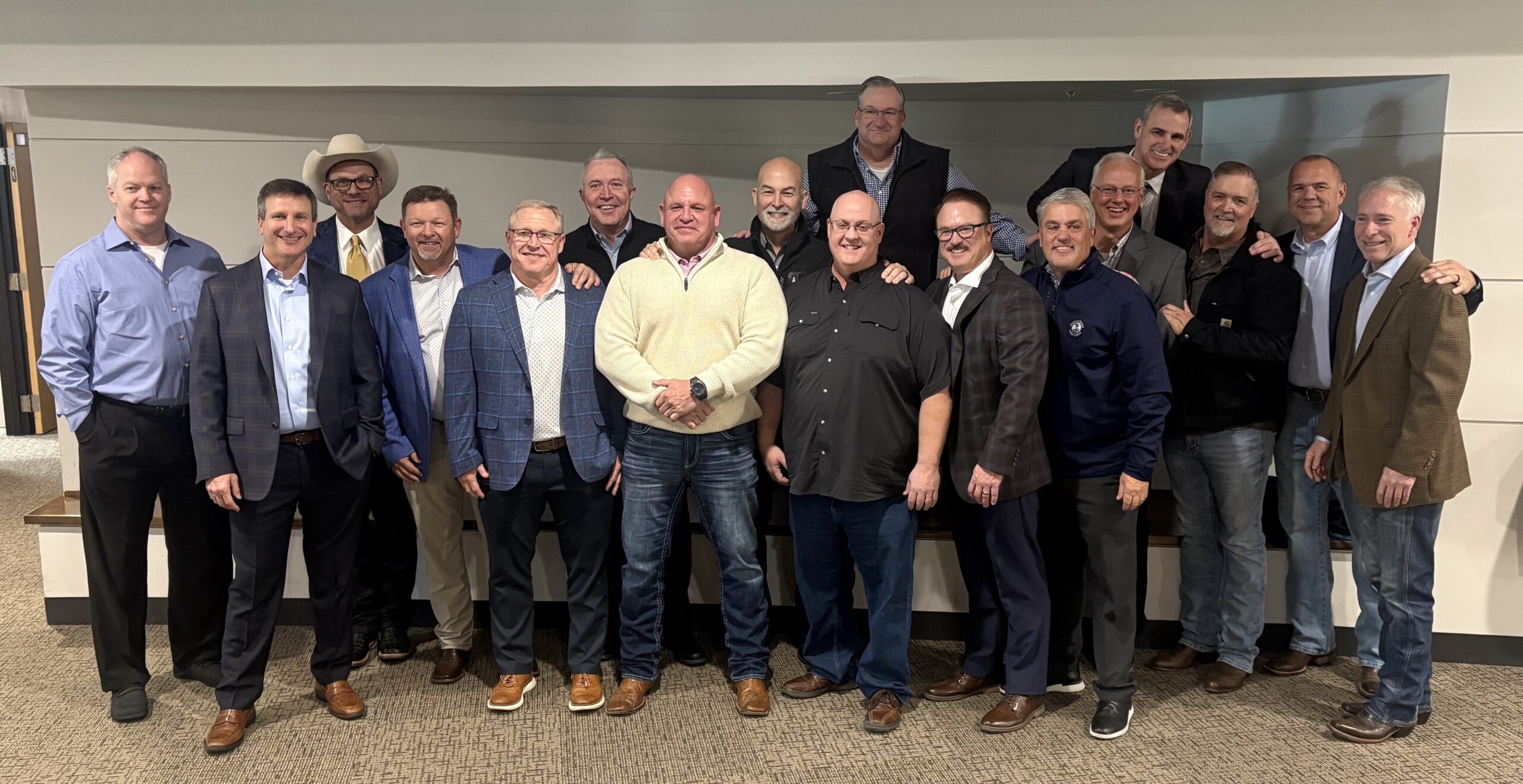
Then Saturday morning, Rhonda and I met at the Saturn Road Church of Christ in Garland for Coach Richmond’s funeral. Coach Larry Richmond was my high school football coach at Dallas Christian. He was a history and health teacher and, for a couple of years in an emergency situation, our tennis coach. And we all loved him deeply. There were about 20 of us at the service who played for Coach Richmond, and we took pictures together and swapped a lot of football stories in the foyer, at the reception, and for about three hours at the On the Border at Saturn Road and Northwest Highway.
That crazy last drive and the Savage Fake that beat Metro Christian. The 4th quarter meltdown in that playoff game at Bishop Lynch. Cowboy drills. Sideline tackle drills. Uphill forties. Dean Stewart’s grades that were questionable for the Trinity game and kept him out of the First Baptist game. The Greenhill bell. Crack-backing on Greg Lybrand in practice and fearing for my life every day after until he graduated. A certain peanut butter incident after a week of two-a-days at football camp. The Bomb Squad. Ground Control. Coach T’s “Major Tom” towel. All the nicknames. Pearhead’s intense running. Godoy’s speed and the physical way he went after a football. Dumb Adkins’ toughness and leadership. Coach Lisle.
As I drove to Midland after that long lunch, my head aching from laughing too hard for too long, and Rhonda drove home to Edmond, we talked on the phone with each other for almost an hour and a half. Psycho-analyzing all of it. Reviewing feelings and reactions. Remembering people who weren’t there. Reminding of something funny or unexpected that was done or said.
I came away from the weekend overflowing with gratitude to God for all the amazingly wonderful people he has placed in my life. My whole life. Coach Richmond was MY coach! So was Coach Lisle! I had both of them! And Coach A and Coach T and Coach Savage and Coach Smith and Coach Shack. How was I so blessed? Jason Reeves is MY friend. So is Dan and Kevin and Robby John! Todd Adkins was MY teammate and running buddy in high school and MY roommate in college. I also went to high school and was friends with Mark Cawyer and Randy Hill and Michelle Peoples and Jeff Majors and Stephen Fitzhugh and Kyle Douthit! How? Rhonda Kingsley is MY sister! Completely undeserved! Totally lucky! Deeply and richly blessed by God!
Don’t wait until next week. Tell the people you love that you love them.
Peace,
Allan
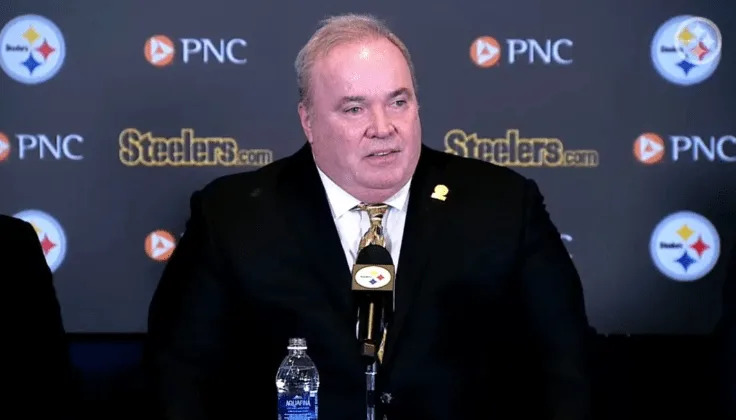
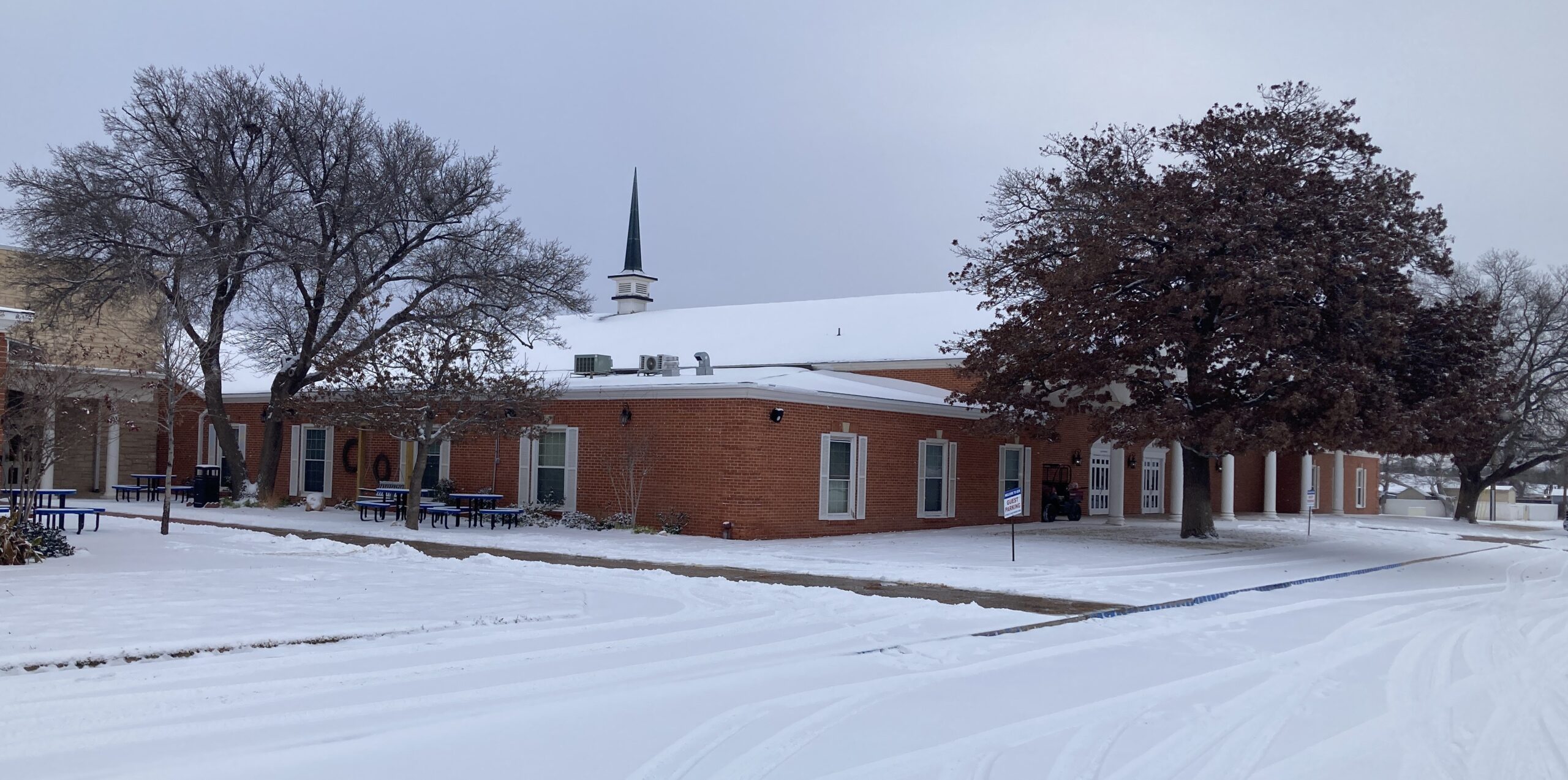
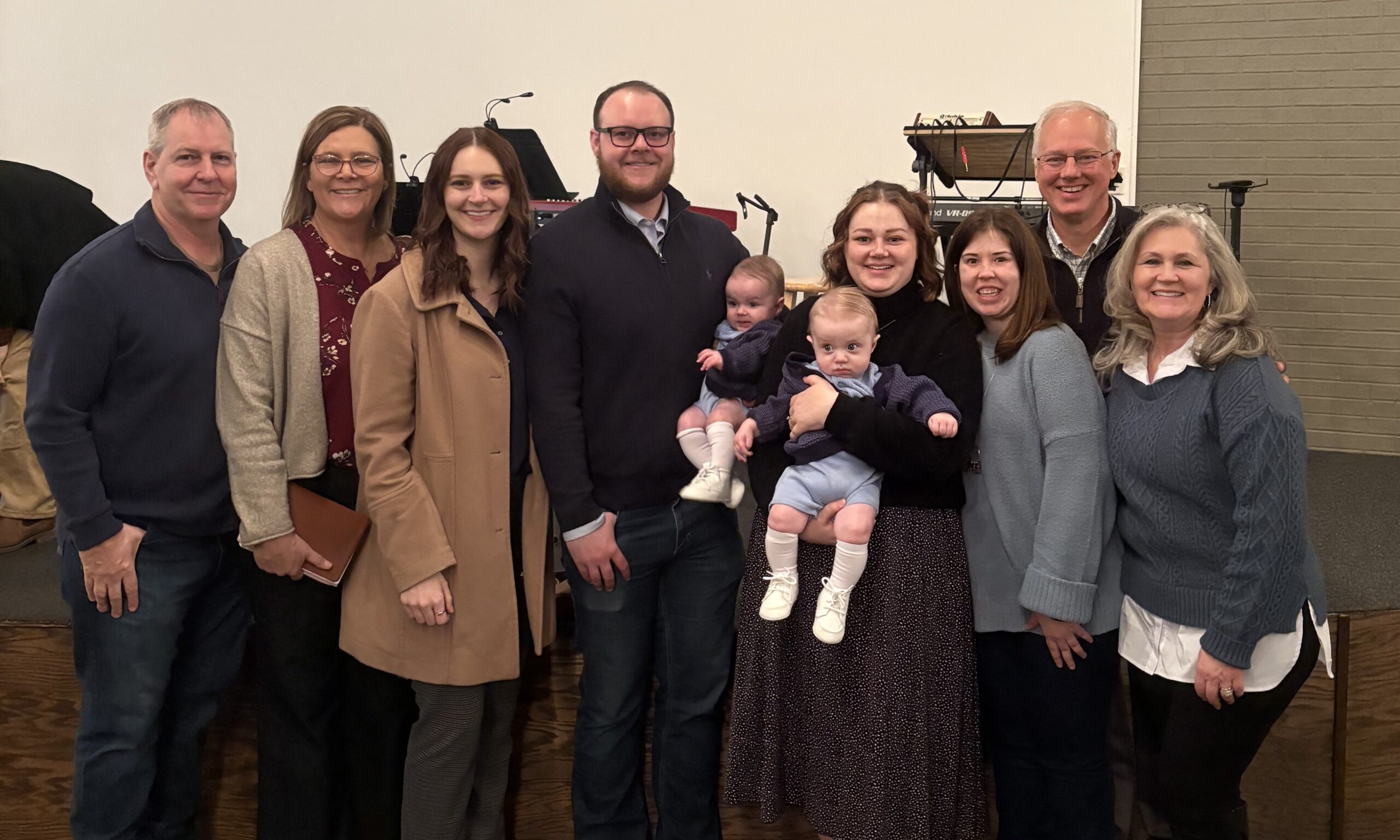

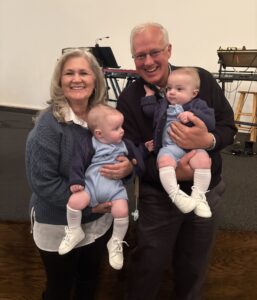

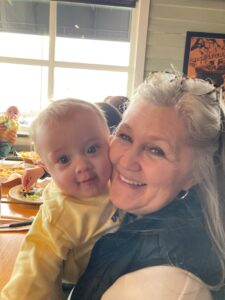


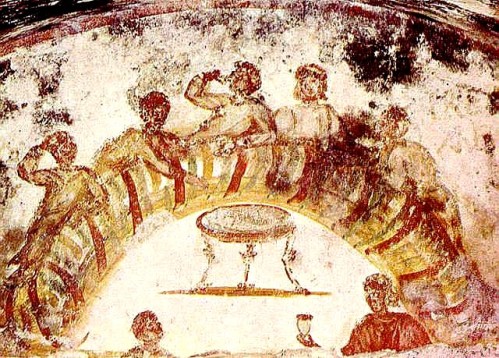
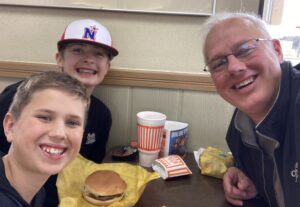






Recent Comments